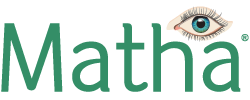Dystonia Ayurvedic Treatment
Dystonia is the condition involving involuntary muscle contractions (joint movements without the person’s will). These contractions/ spasms may be mild or severe and sometimes painful, interfering daily activities. The exact cause of dystonia is not known, and it is often associated with certain disease conditions like Parkinson’s disease, Huntington’s disease, stroke, birth injuries, encephalitis etc. There is no specific treatment for dystonia, but symptomatic care can be provided.
Dystonia Signs and Symptoms
There are different types of dystonia with varying signs and symptoms. The symptoms often aggravate with stress. Sometimes, the contractions occur while doing a specific activity (eg: writing).
- Based on the part affected
- Generalised dystonia- muscle contractions almost all body parts.
- Focal dystonia- affects only a specific part of body.
- Multifocal dystonia- muscle spasm over multiple areas which are not related directly.
- Segmental dystonia- affects body parts as a segment.
- Hemidystonia- affects leg and arm of only one side.
- Based on pattern of symptoms
- Blepharospasm- affects eyes. Unusual blinking is the major symptom which appears over single eyelid and then involve both eyes. Vision is intact but the person feels difficulty to see objects due to increased blinking. In chronic cases, the eyelid remains closed for long time.
- Torticollis/ cervical dystonia- causes abnormal movements of neck.
- Oromandibular dystonia- causes difficulty to speak, take food etc due to spasm of jaw muscles, tongue and lips.
- Spasmodic dystonia- affects muscles of speech resulting in problems with speaking.
- Tardive dystonia- due to medications.
- Paroxysmal dystonia- muscle spasms only during the attacks (periodic spasms).
- Writers’ cramp- causes difficulty to write due to pain over arm/ forearm.
- Based on the development of symptoms
- Primary- without other symptoms. Only uncontrolled muscle contractions are observed.
- Secondary- other symptoms along with muscle spasm which include rapid muscle contractions (myoclonus dystonia), exaggerated reflexes (dopa-responsive dystonia), sudden development of dystonia (rapid onset dystonia parkinsonism), etc.
Dystonia Ayurvedic Analysis
Akshepaka (abnormal contractions) is a condition due to vitiation of vata and therefor it is described under vatavyadhi in Ayurveda. Specifically, a condition called vatahata is explained which is characterised by abnormal blinking of eyelids, which is also due to vatavruddhi.
Dystonia Causative Factors (Ayurveda)
Excessive physical activity, lack of proper rest, trauma, excessive exposure to cold etc causes vatavruddhi (aggravation of vata). Then vata dislodges in joints, muscles etc to cause abnormal movements by attacking dhamani (nerves and blood vessels).
Possible Complications of Dystonia Disease
The complications of dystonia are problems with vision, difficulty to speak/ chew, pain, fatigue, difficulty to perform daily activities, mental distress etc.
Other systemic diseases and precautions to be taken
Check whether there are other conditions like Parkinson’s disease before planning treatment.
Dystonia Disease Management with Ayurveda Treatment
Internal medications are provided to pacify vata and manage the symptoms. Along with this, procedures like snehana (oil massage), swedana (sudation therapy), nasya (nasal administration of drugs), tarpana (retention of medicine in eyes), virechana (purgation therapy), vasthi (enema with suitable drugs) etc are provided depending on the symptoms and area affected.
Diet
Include more whole grains, vegetables, fruits, milk and dairy products in diet. Reduce the consumption of cold and dry food, bitter and astringent food, etc.
Exercise
Exercises that provide coordinated movements of muscles are beneficial to practice. Yoga is a good technique.
Dystonia Preventive Aspects in Ayurveda
As the exact cause is unknown the prevention of dystonia is difficult, but preventing vatavruddhi is helpful up to some extent. This includes:
- Avoid excessive physical activity.
- Take proper rest.
- Avoid skipping of meals, accustoming to light food, late night sleep, bearing heavy weight over head or shoulder, travelling continuously etc.
- Apply suitable oil all over the body and massage well before bath.
- Practice nasya, karnapoorana, siropichu etc as per the instructions of physician.
- Do not take excessive cold, dry, food.
- Avoid chances of infections, falls etc.
Importance of Diet
Choose the right diet in order to pacify aggravated vata with the help of a physician. A balanced diet can prevent the condition up to an extent.
Lifestyle
- Take adequate rest.
- Avoid stress.
- Eat healthy food.
- Exercise regularly to improve muscle control.
How to get ayurvedic treatment from Matha
1
Contact us
Tell us your health concern via contact form, email, or phone
2
Medical Questionnaire
Fill up the medical questionnaire that we send to you.
3
Consultation
Consult our Chief Physician at the time slot we schedule for you.
Matha Consultation Request Form
In case of a medical emergency, DO NOT wait for the above process. You can inform your situation at our helpdesk ([email protected] / 9847195533)
Our Hospitals
Matha has three hospitals in Trivandrum. You can opt for any one of our hospitals, rooms will be provided based on availability.
Know more about the treatment costs of Matha Ayurveda Hospitals
Our Hospitals
Matha Ayurveda Eye Hospital & Panchakarma Centre
Near Civil Station, Jayaprakash Ln, Kudappanakunnu, Thiruvananthapuram, Kerala 695043
Reception: 04712731352
Matha Ayurveda Eye Hospital & Panchakarma Centre
Eye Hospital Road (Moongode - Meppukada Road), Moongode P O Near, Thachottukavu, Kerala 695573
Reception: 9562997799
Contact
OP Timings
9.00 am - 5.00 pm
Appointment only
Important Links



